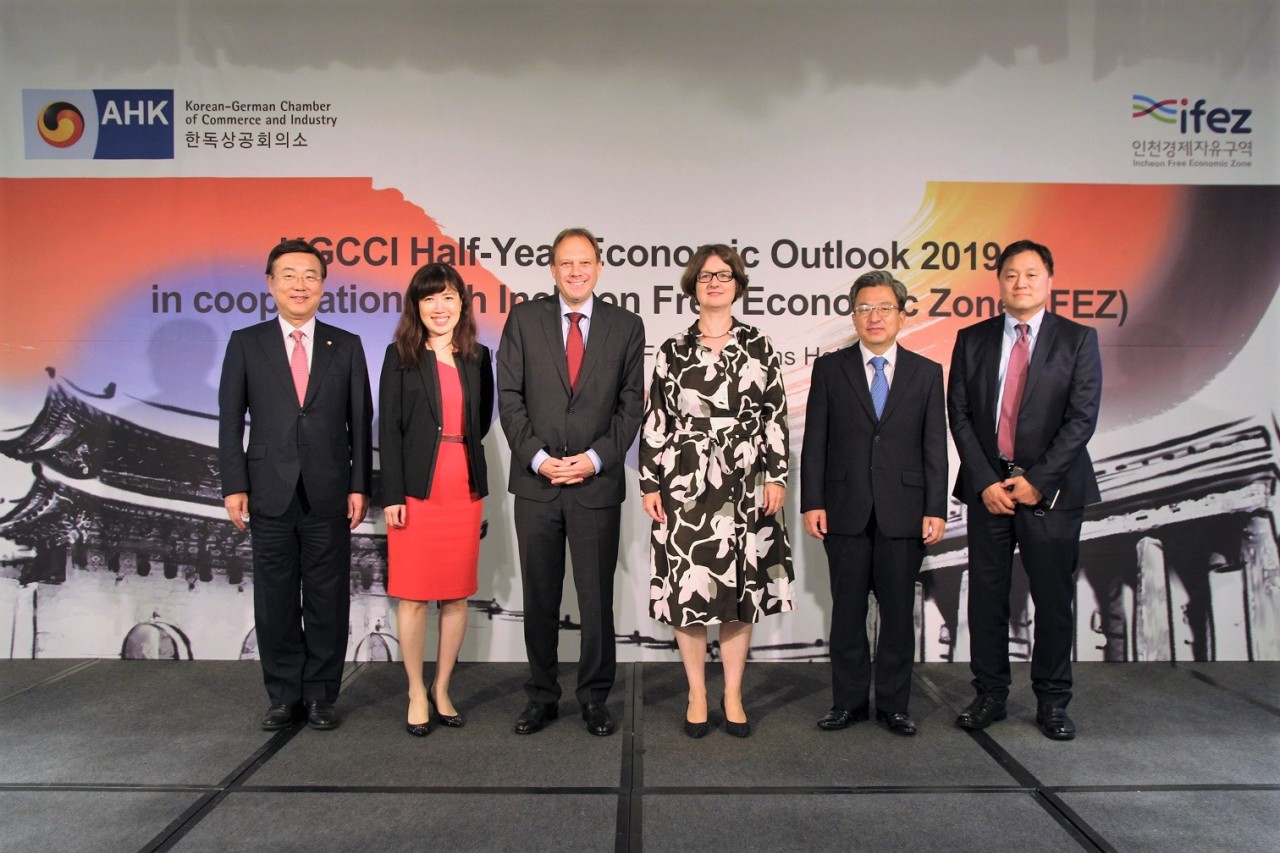The Korean-German Chamber of Commerce and Industry held its Half-Year Economic Outlook 2019 in Seoul in cooperation with the Incheon Free Economic Zone, the chamber of commerce said.
The first part of the event, held to look at trends affecting trade between the two countries, was led by two distinguished speakers. Peter Winkler, deputy head of mission and the head of the economic department at the German Embassy, highlighted the transitions affecting the two countries’ energy sectors as well as the “fourth industrial revolution” as new growth engines in South Korean-German trade relations. He stated that German investment had greatly contributed to job creation in Korea. He also stressed the importance of fair treatment for foreign companies, including the reduction of nontariff trade barriers and of “uniquely Korean” regulations.
 |
Jong Seok Kim (from left), member of the Korean National Assembly, Juliana Lee, managing director of Deutsche Bank, Peter Winkler, deputy head of mission at the German Embassy, Barbara Zollmann president & CEO of KGCCI, Lee Won-jae, commissioner of IFEZ and Woosuk Kenneth Choi editor of The Chosun Ilbo (KGCCI) |
“The impact of trade policy shocks has been significant with Asia’s growth likely falling to its weakest level since the global financial crisis,” said Juliana Lee, managing director of Deutsche Bank. “While the region’s authorities are furthering macro policy support, they may be encouraged to engage more in fiscal stimulus instead,” she added.
The second part of the event was a panel discussion featuring three experts on power, the potential limitations of regulatory frameworks and legislation, and the impact of those limitations on foreign direct investment. Moderated by Barbara Zollmann, president and CEO of the Korean-German Chamber of Commerce and Industry, the panel discussion emphasized that in times when an economy is weakening and “old” industries are going through major transitions, fewer but very precise regulations are needed to create a fast-moving, innovative business environment that creates new jobs.
“We are going to experience totally new geostrategic challenges in Northeast Asia,” said Kang Choi, vice president of the Asan Institute for Policy Studies, one of the three panelists.
By Shin Ji-hye (
shinjh@heraldcorp.com)








